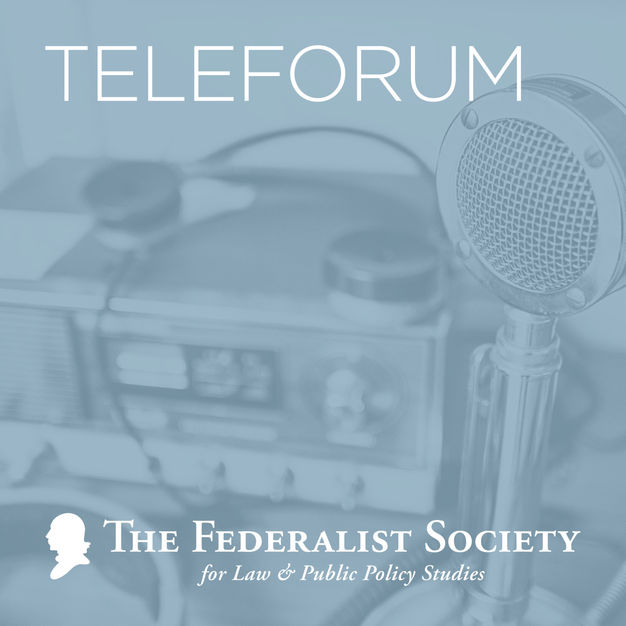
Teleforum
This series of podcasts features experts who analyze the latest developments in the legal and policy world. The podcasts are in the form of monologues, podcast debates or panel discussions and vary in length. The Federalist Society takes no position on particular legal or public policy issues; all expressions of opinion are those of the speakers. We hope these broadcasts, like all of our programming, will serve to stimulate discussion and further exchange regarding important current legal issues.
- 1 hour 1 minuteNew Voices in Civil Rights: How Universities are Responding to SFFAInstitutions of higher education released demographic data for their first classes admitted after the Supreme Court's landmark decision Students for Fair Admissions v. President and Fellows of Harvard College held that the Constitution prohibits the use of race as a "bonus" in admissions decisions. The demographic data reflect a variety of admissions policy changes. Four new voices in civil rights law--all recent law school graduates--will summarize trends in post-Fair Admissions admissions policies and data to explain how institutions of higher education responded to the Fair Admissions decision.
Featuring:
Peter Abernathy, Judicial Law Clerk, 31st Circuit Court of Virginia
Samuel Gellen, Honor Law Graduate Attorney, U.S. Nuclear Regulatory Commission
Leo O'Malley, Judicial Law Clerk, U.S. District Court for the Eastern District of Texas
Anthony Pericolo, Associate, Desmarais LLP
(Moderator) Devon Westhill, President and General Counsel, Center for Equal Opportunity17 January 2025, 10:05 pm - 48 minutes 30 secondsCourthouse Steps Decision: TikTok, Inc. v. GarlandIn TikTok, Inc. v. Garland, the Court was asked to consider whether the Protecting Americans from Foreign Adversary Controlled Applications Act, as applied to petitioners, violates the First Amendment. The PAFACA requires that TikTok either cease operations in the United States or have its parent company ByteDance sell off the American segment of the company by January 19, 2025. Petitioners challenged the law as unconstitutionally abridging their freedom of speech, and after a lower court decision upholding the law, the Supreme Court granted cert on December 18, 2024.
Oral Argument was heard on January 10, 2025, and a decision came out on January 17, 2025.
Join us for a Courthouse Steps Decision program where we analyze the decision and likely effects.
Featuring:
Darpana Sheth Nunziata, Public Interest Litigator17 January 2025, 9:42 pm - 1 hour 33 secondsThe Perils and Promise of A.I. in Criminal JusticeOur liberty, safety, and prosperity are based on the rule of law, not the rule of man or machine. However, given that the criminal justice system suffers from many efficiencies and errors, could artificial intelligence aid the efforts of police, prosecutors, and other actors tasked with protecting public safety with limited resources? Given the power of A.I. technologies to find proverbial needles in haystacks and identify patterns that would otherwise be overlooked, it is not surprising that some criminal justice agencies are already deploying these tools. How can we harness the potential benefits while also ensuring that our liberty and privacy are not compromised? This discussion will feature experts in both the law and technology to help us sort though these questions and identify policies and practices that promote innovation while ensuring constitutional rights are protected.
Featuring:
Michael R. Holley, First Assistant District Attorney, Montgomery County District Attorney’s Office, Conroe Texas
Patrick Robinson, Owner, VSV Leadership
Jesse Rothman, Senior Fellow, Council on Criminal Justice
Hon. Scott U. Schlegel, Judge, Fifth Circuit Court of Appeal, State of Louisiana
(Moderator) Marc Levin, Chief Policy Counsel, Council on Criminal Justice; Senior Advisor, Right on Crime
--
Related Readings
--16 January 2025, 6:00 pm - 59 minutes 28 secondsCourthouse Steps Oral Argument: Free Speech Coalition, Inc. v. PaxtonFree Speech Coalition, Inc. v. Paxton concerns Texas Law H.B. 1181, and what precedent should apply in considering its impact on free speech.
Passed in 2023, the law requires commercial entities, including social media platforms, "that knowingly and intentionally publish or distribute material on an Internet website... more than one-third of which is sexual material harmful to minors" to age-gate their content, and to verify the age of their users, ensuring they are 18 years of age or older.
Soon after the law passed, plaintiffs, including the Free Speech Coalition, "a trade association for the adult industry", sued, claiming the law violated their right to free speech. Drawing on a line of cases including Ashcroft v. ACLU (2004), the plaintiffs argued that since the law impacted constitutionally protected speech, strict scrutiny should be applied and the TX law failed that test. In reviewing the case, the Fifth Circuit denied that argument, instead applying a rational basis test, drawing from the precedent of Ginsburg v. New York (1968).
Thus, the Supreme Court is set to consider a relatively narrow question: whether the court of appeals erred as a matter of law in applying rational-basis review, instead of strict scrutiny, to a law burdening adults’ access to protected speech.
Join us for a Courthouse Steps program following oral argument on January 15, 2025, where we break down and analyze how arguments went before the Court.
Featuring:
Erik S. Jaffe, Partner, Schaerr | Jaffe LLP16 January 2025, 2:51 pm - 1 hour 4 minutesImmigration and the Question of State InvasionImmigration is a spotlight issue, especially heading into the next administration. Some say the United States is under attack—that the entrance of millions of immigrants, some of whom intend to and do cause harm to Americans, constitutes an “invasion” or "predatory incursion" of the sort mentioned in Article I of the Constitution and the Alien Enemies Act (AEA). Others contend, however, that allowing the term “invasion” or "predatory incursion" to apply to illegal immigration is both wrong and dangerous, and would allow for the possibility of states engaging in war or mounting hostility with neighboring countries. Is the US under invasion or predatory incursion by illegal immigrants? Can illegal immigration be an instrument to diminish the sovereignty of a nation? Join us in discussing these important questions and more.
Featuring:
Hon. Ken Cuccinelli, Former Acting Deputy Secretary for the Department of Homeland Security
Prof. Ilya Somin, Professor of Law, Antonin Scalia Law School, George Mason University
Moderator: Joseph Humire, Executive Director, Center for a Secure Free Society
--
To register, click the link above.
--
For reference:
Policy Brief: How States Can Secure the Border
Attorney General Opinion No. I22-001(R21-015)
Immigration is Not Invasion
Courts Might Not Stop Trump's Illicit Plans for Mass Deportations15 January 2025, 4:00 pm - 1 hour 46 secondsTikTok on the Clock: A Courthouse Steps Oral Argument on TikTok, Inc. v. GarlandIn TikTok, Inc. v. Garland (consolidated with Firebaugh v. Garland) the Court is set to consider whether the Protecting Americans from Foreign Adversary Controlled Applications Act (PAFACA)(enacted by Congress in April 2024), as applied to petitioners, violates the First Amendment.
Put forward as a law focused on national security, PAFACA would require that TikTok either cease operations in the United States or have its parent company ByteDance sell off the American segment of the company by January 19, 2025. The government contends that TikTok poses a notable national security threat given the data it, as a foreign-owned company, collects on American users and the extent to which it could be used to control information (or disinformation) flow to American users. TikTok, along with several users, on the other hand, challenged the law, contending that while there may be a legitimate government interest in national security, the means employed in this case violate the free speech rights of both TikTok and its American users who use the platform to create content. The DC Circuit, in an opinion written by Judge Ginsburg, upheld the law against a First Amendment challenge.
The Supreme Court granted cert on December 18, 2024, and oral argument is set for January 10, 2025. Join us for a panel Courthouse Steps program following oral argument.
Featuring:
Corbin K. Barthold, Internet Policy Counsel and Director of Appellate Litigation, TechFreedom
Christian Corrigan, Solicitor General, Montana Attorney General's Office
(Moderator) Casey Mattox, Vice President, Legal Strategy, Stand Together14 January 2025, 2:33 pm - 58 minutes 46 secondsTalks with Authors: Lawless: The Miseducation of America’s ElitesLawless uses the author, Ilya Shapiro’s, “lived experience” with Georgetown as a jumping-off point to discuss what he describes as the warping of legal education and the legal profession. He argues that law schools used to teach students how to think critically, advance logical arguments, and respect opponents. Now they produce lawyers who can’t tolerate disagreement and reject the validity of the law itself. He claims the problem is bigger than radical students and biased faculty; it’s institutional weakness. Law schools produce the next generation of gatekeepers for our legal and political institutions: America’s future judges, prosecutors, politicians, and presidents. Shapiro argues it’s a big deal and discusses the failure of ideology, leadership, and bureaucracy—and what we can do about it.
Featuring:
Ilya Shapiro, Senior Fellow and Director of Constitutional Studies, Manhattan Institute
(Moderator) Hon. Kenneth L. Marcus, Founder and Chairman, Louis D. Brandeis Center for Human Rights Under Law10 January 2025, 10:03 pm - 1 hour 30 minutesA Seat at the Sitting - January 2025Each month, a panel of constitutional experts convenes to discuss the Court’s upcoming docket sitting by sitting. The cases covered in this preview are listed below.
TikTok, Inc. v. Garland (January 10) - First Amendment, National Security; Issue(s): Whether the Protecting Americans from Foreign Adversary Controlled Applications Act, as applied to petitioners, violates the First Amendment.
Hewitt v. U.S. (January 13) - Criminal Law, First Step Act; Issue(s): Whether the First Step Act’s sentencing reduction provisions apply to a defendant originally sentenced before the act’s enactment, when that original sentence is judicially vacated and the defendant is resentenced to a new term of imprisonment after the act’s enactment.
Stanley v. City of Sanford, Florida (January 13) - ADA; Issue(s): Whether, under the Americans with Disabilities Act, a former employee — who was qualified to perform her job and who earned post-employment benefits while employed — loses her right to sue over discrimination with respect to those benefits solely because she no longer holds her job.
Thompson v. U.S. (January 14) - Financial Services; Issue(s): Whether 18 U.S.C. § 1014, which prohibits making a “false statement” for the purpose of influencing certain financial institutions and federal agencies, also prohibits making a statement that is misleading but not false.
Waetzig v. Halliburton Energy Services (January 14) - Civil Procedure; Issue(s): Whether a voluntary dismissal without prejudice under Federal Rule of Civil Procedure 41 is a “final judgment, order, or proceeding” under Federal Rule of Civil Procedure 60(b).
Free Speech Coalition v. Paxton (January 15) - Free Speech; Issue(s): Whether the court of appeals erred as a matter of law in applying rational-basis review, instead of strict scrutiny, to a law burdening adults’ access to protected speech.
Food and Drug Administration v. R.J. Reynolds Vapor Co. (January 21) - Federalism & Separation of Powers; Issue(s): Whether a manufacturer may file a petition for review in a circuit (other than the U.S. Court of Appeals for the District of Columbia Circuit) where it neither resides nor has its principal place of business, if the petition is joined by a seller of the manufacturer’s products that is located within that circuit.
McLaughlin Chiropractic Associates v. McKesson Corporation (January 21) - Telecommunications; Issue(s): Whether the Hobbs Act required the district court in this case to accept the Federal Communications Commission’s legal interpretation of the Telephone Consumer Protection Act.
Barnes v. Felix (January 22) - Criminal Law, Fourth Amendment; Issue(s): Whether courts should apply the "moment of the threat" doctrine when evaluating an excessive force claim under the Fourth Amendment.
Cunningham v. Cornell University (January 22) - Financial Services; Issue(s): Whether a plaintiff can state a claim by alleging that a plan fiduciary engaged in a transaction constituting a furnishing of goods, services, or facilities between the plan and a party in interest, as proscribed by 29 U.S.C. § 1106(a)(1)(C), or whether a plaintiff must plead and prove additional elements and facts not contained in the provision’s text.
Featuring:
Jennifer B. Dickey, Deputy Chief Counsel, U.S. Chamber Litigation Center, U.S. Chamber of Commerce
Prof. Michael R. Dimino, Sr., Professor of Law, Widener University Commonwealth Law School
Shannon M. Grammel, Counsel, Lehotsky Keller Cohn LLP
Gregory Y. Porter, Partner, Bailey Glasser LLP
Vikrant P. Reddy, Senior Fellow, Stand Together Trust
Bryan Weir, Partner, Consovoy McCarthy PLLC
(Moderator) Brett Nolan, Senior Attorney, Institute for Free Speech10 January 2025, 2:33 pm - 1 hour 53 secondsThis Land Is My Land: Utah's Supreme Court Challenge to Federal Land OwnershipIn August of 2024, the state of Utah filed suit against the United States contesting the ownership of certain lands in Utah. When asking the United States Supreme Court to exercise its original jurisdiction, Utah argues that the federal government lacks constitutional authority to retain perpetual ownership of 18.5 million acres of land in Utah that the Bureau of Land Management currently manages. It further asks the court to order the federal government to dispose of those lands. The federal government counters that the constitution permits the continued federal ownership of these lands, and confers upon it the right to determine when, how, and if it should dispose of these lands. Join this FedSoc Forum in discussing this case and its possible outcomes, including the prospect of the disposal of millions of acres of federally owned land.
Featuring:
Ethan Blevins, Legal Fellow, Pacific Legal Foundation
David Willms, Associate Vice President, Public Lands at National Wildlife Federation
Moderator: Jonathan Wood, Vice President of Law & Policy, Property and Environment Research Center
--
To register, click the link above.8 January 2025, 4:20 pm - 58 minutes 32 secondsThe Future of Securities Self-Regulation After AlpineAlpine Securities Corp. v. Financial Industry Regulatory Authority (“Alpine’) raises a challenge to the constitutionality of the structure and regulatory authority of the Financial Industry Regulatory Authority (FINRA) before the U.S. Court of Appeals for the District of Columbia Circuit. Alpine Securities, a brokerage firm, argues that the structure of FINRA violates the U.S. Constitution, particularly the Appointments Clause (Article II, Section 2), and the separation of powers doctrine. The company contends that FINRA, which operates as a self-regulatory organization (SRO), is improperly structured because its disciplinary and regulatory authority is exercised without sufficient oversight by the federal government or the President, who would normally appoint officers exercising such powers.
Alpine's central argument is that FINRA's board members are not appointed by the President, nor are they subject to Senate confirmation, as required by the Appointments Clause and the private non-delegation doctrine for officers of the United States. Alpine contends that, as a private, non-governmental entity, FINRA is composed of individuals who are not accountable to the public or elected officials in the same way that government agencies are. This, Alpine argues, makes its regulatory and enforcement powers unconstitutional.
FINRA argues, however, that its regulations and enforcement decisions are under close scrutiny by the SEC, and, thus, that this delegation of federal power to it, a private regulator, is constitutionally permissible. FINRA also worries that accepting Alpine’s arguments could bring destabilizing and potentially disastrous consequences to the self-regulatory framework of the markets.
The case involves questions about the balance between public regulatory authority and private self-regulation within the securities industry. The outcome could have significant implications for the structure of SROs like FINRA, which play a key role in regulating the securities industry but operate outside the direct control of the government.
The Corporations, Securities & Antitrust Practice Group of the Federalist Society is pleased to present this FedSoc Forum on the Alpine case. Join us in discussing the arguments raised in the case and the DC Circuit’s opinion, as well as the implications for securities industry self-regulation going forward.
Featuring:
Brian Barnes, Partner, Cooper & Kirk PLLC, Lead Counsel for Alpine
W. Hardy Callcott, Partner, Sidley Austin LLP
Moderator: Joanne Medero, Former Managing Director, BlackRock Inc.
--
To register, click the link above.30 December 2024, 6:56 pm - 1 hour 1 minuteThe Future of Civil Rights Enforcement at the EEOC, OFCCP, and DOJFederal civil rights enforcement in the employment area is handled by the Equal Employment Opportunity Commission (EEOC,) the Office of Federal Contract Compliance Programs (OFCCP,) and the Department of Justice (DOJ.) This webinar will explore efforts to coordinate enforcement by the three agencies and look at ways to avoid duplication of efforts to streamline and strengthen civil rights and equal employment opportunity enforcement in the United States. It will also look at recent efforts by the federal government to increase the presence of DEIA (diversity, equity, inclusion, and accessibility) programs in the federal sector and the public response to these developments.
Featuring:
Jon Greenbaum, Founder, Justice Legal Strategies PLLC
Prof. George R. La Noue, Professor Emeritus of Political Science and Professor Emeritus of Public Policy, University of Maryland Baltimore County
Craig E. Leen, Partner, K&L Gates; Former Director, OFCCP
Hon. Jenny R. Yang, Adjunct Professor of Law, New York University School of Law; Former Director, OFCCP; Former Chair, EEOC
(Moderator) Robert J. Gaglione, Arbitrator, American Arbitration Association; Former Deputy Director, OFCCP19 December 2024, 4:10 pm - More Episodes? Get the App
Your feedback is valuable to us. Should you encounter any bugs, glitches, lack of functionality or other problems, please email us on [email protected] or join Moon.FM Telegram Group where you can talk directly to the dev team who are happy to answer any queries.
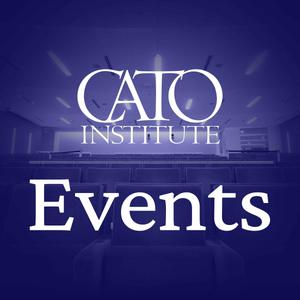 Cato Event Podcast
Cato Event Podcast
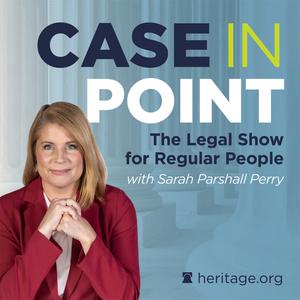 Case in Point: The Legal Show for Regular People
Case in Point: The Legal Show for Regular People
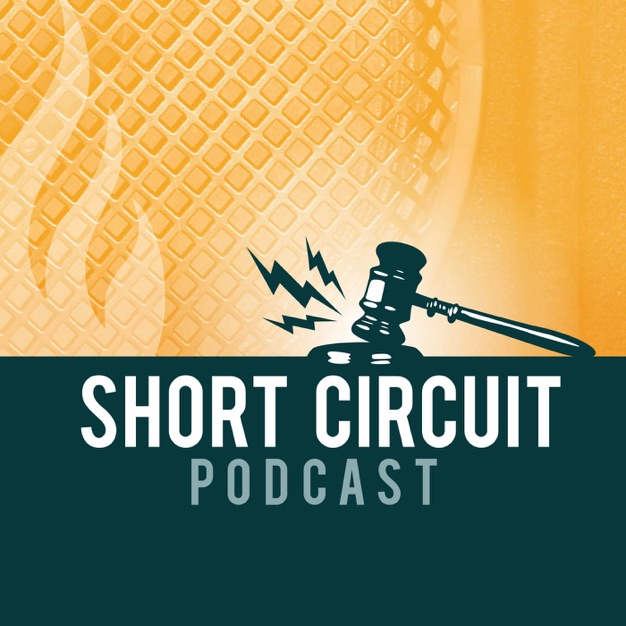 Short Circuit
Short Circuit
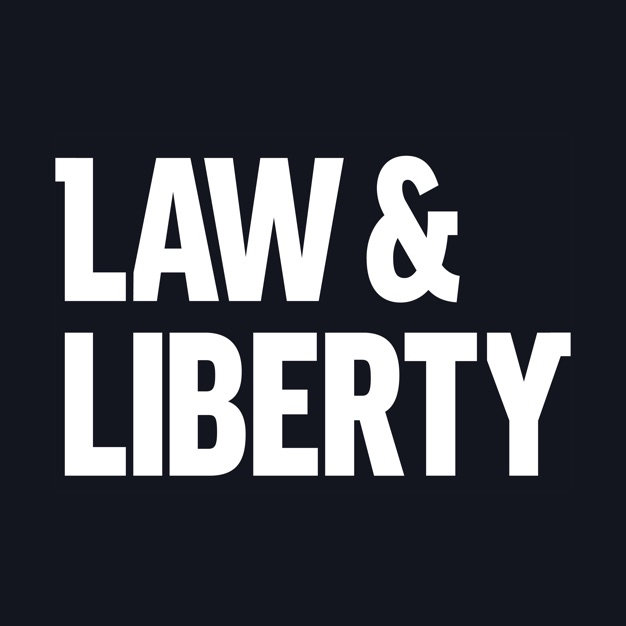 Liberty Law Talk
Liberty Law Talk
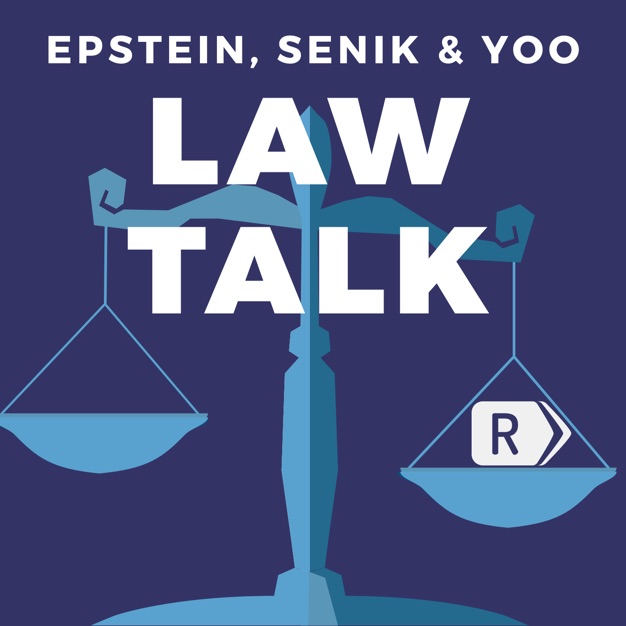 Law Talk With Epstein, Yoo & Senik
Law Talk With Epstein, Yoo & Senik